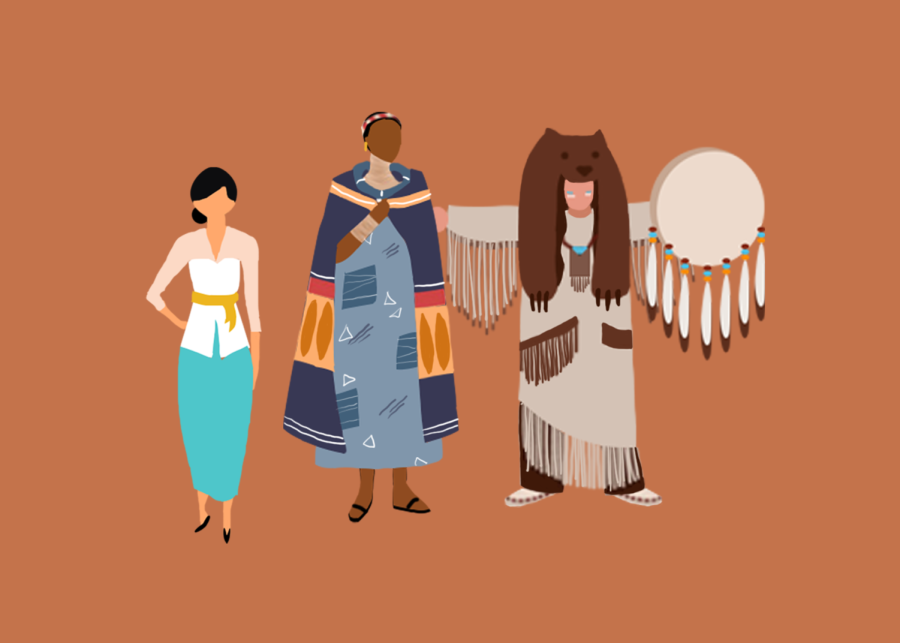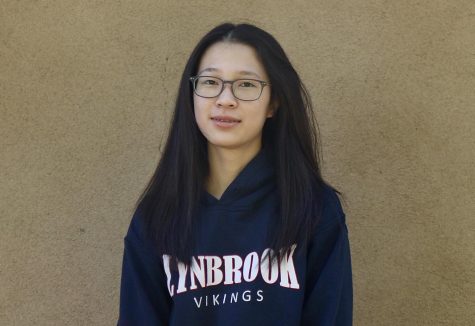The harmful implications of generalizing cultures
Graphic illustration by Claire Chiu
Labeling non-Western cultures as “primitive” not only perpetuates ignorance and disregards the inherent complexity of cultures, but also fosters the idea that there is no room for inclusion of non-Western cultures.
March 17, 2021
America is globally known as a multicultural haven. From the Europeans arriving in the 1900s to the wave of Asian immigrants arriving during the technological Gold Rush, America’s success is largely dependent on its multicultural population. But America also has a long history of prejudice, often labeling non-Western cultures as “primitive.” Not only does this word perpetuate ignorance and disregards the inherent complexity of cultures, but it also fosters the idea that there is no room for inclusion of non-Western cultures.
While early anthropologists and colonizers used the term “primitive cultures” to describe the customs and traditions of third world civilizations, this expression has since been determined as unacceptable for the reason that it prevents people from being understood at an equal level. Its connotation when used to describe people is clear: it’s dehumanizing. However, the term primitive is still used widely in mainstream media. Major media news anchors on CNN, Fox and more have all used “primitive” or synonyms to describe African people during coverage of Black History Month.
Rather than assuming that the Western society is inherently more socially and technologically advanced than other cultures, it is important to report without bias. Many media sources treat the Western societal model as a benchmark, and everything straying from it as an anomaly or even unethical. This brings up the issue of perspective. For example, in many textbooks and articles, there is rarely an unbiased account of what different political and economic systems in other countries are like. In the class Principles of Business, the textbook teaches students that traditional and command economies are inherently inferior in comparison to the Western market economy. This association is completely false, however, as it attributes economic success to the Western market model itself rather than the technological advances that created it.
“We always have to remind ourselves that the winners write history,” said Welsh. “Whoever is winning right now is spreading the word that they did the best job.”
Overwhelming nationalism and political propaganda furthered by technology have only allowed this rhetoric to spread further. Although people may not outright call cultures “primitive,” they imply this conception through negative commentary and comparisons to Western culture, mainly on social media. For example, Donald Trump’s series of speeches and tweets referring to coronavirus as the “Chinese flu” encourages discrimination against Asians which in turn has fueled anti-Asian hate in the past year. After the false rumor that COVID-19 was caused by consumption of bats spread, many racists began mocking Asian cultures for the minority population that did consume bats. Thus, it is even more crucial to portray cultures accurately across all platforms. Furthermore, labeling cultures as primitive is presumptuous and flawed. A common example is the portrayal of cultures in “third-world countries” such as South Africa and Indonesia as poor and underdeveloped, a notion disproven by their historic achievements.
“In textbooks portrayals of Western countries, they’ll be extremely modern,” Biram said. “But if you see an African or South Asian country, then you see that most times, like the media, the focus is on the negative aspects of those countries such as dirty streets and conflict.”
In truth, there is astounding ethnic and tribal diversity in South Africa that enables a preservation of rich customs, ancestral wisdom and rare art techniques. As for Indonesia, it was one of the first pioneers of martial arts, intricate Bali handcrafts and mesmerizing temple architecture. Western medicine was even derived from non-Western medicinal practices. To generalize cultures by their present national conflict or simply by their differences from Western culture is to disregard such cultural feats and their contributions to human history.
In order to pursue a more progressive representation of the world and break the bubble that this harmful phrase cultivates, it is imperative to change the way the general public talks about non-Western cultures — starting by removing the term “primitive cultures” from our vocabulary.
“The first step to like solving this problem is acknowledging our own internal biases,” said Biram. “We need to understand that.”



































































